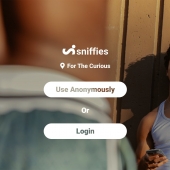-
Google Chrome to drop support for Windows 7 / 8.1 in Feb 2023
Google announced today that the Google Chrome web browser will likely drop support for Windows 7 and Windows 8.1 starting February 2023.
- October 24, 2022
- 04:31 PM
 11
11
-
Chrome extensions with 1 million installs hijack targets’ browsers
Researchers at Guardio Labs have discovered a new malvertizing campaign pushing Google Chrome and Microsoft Edge extensions that hijack searches and insert affiliate links into webpages.
- October 24, 2022
- 03:46 PM
 0
0
-
Google simplifies sign-ins with Chrome, Android passkey support
Google announced today that it's introducing passkey support to both its Google Chrome web browser and the Android operating system to simplify sign-ins across apps, websites, and devices.
- October 12, 2022
- 08:00 AM
 0
0
-
Web browser app mode can be abused to make desktop phishing pages
The app mode in Chromium-based browsers like Google Chrome and Microsoft Edge can be abused to create realistic-looking login screens that appear as desktop apps.
- October 03, 2022
- 12:35 PM
 5
5
-
Google to test disabling Chrome Manifest V2 extensions in June 2023
Developers of extensions for Google Chrome can keep their hopes up that the transition from Manifest V2 to V3 will be as gradual as possible, helping to minimize the negative impact on the community of users.
- September 28, 2022
- 01:00 PM
 0
0
-
Gay hookup site typosquatted to push dodgy Chrome extensions, scams
Gay hookup and cruising web app Sniffies is being impersonated by opportunistic threat actors hoping to target the website's users with many typosquatting domains that push scams and dubious Google Chrome extensions. In some cases, these illicit domains launch the Apple Music app prompting users to buy a subscription.
- September 14, 2022
- 02:15 PM
 0
0
-
Hackers steal Steam accounts in new Browser-in-the-Browser attacks
Hackers are launching new attacks to steal Steam credentials using a Browser-in-the-Browser phishing technique that is rising in popularity among threat actors.
- September 12, 2022
- 05:42 PM
 3
3
-
CISA orders agencies to patch Chrome, D-Link flaws used in attacks
CISA has added 12 more security flaws to its list of bugs exploited in attacks, including two critical D-Link vulnerabilities and two (now-patched) zero-days in Google Chrome and the Photo Station QNAP software.
- September 08, 2022
- 03:11 PM
 0
0
-
Google Chrome emergency update fixes new zero-day used in attacks
Google has released Chrome 105.0.5195.102 for Windows, Mac, and Linux users to address a single high-severity security flaw, the sixth Chrome zero-day exploited in attacks patched this year.
- September 02, 2022
- 07:29 PM
 0
0
-
AdGuard’s new ad blocker struggles with Google’s Manifest v3 rules
AdGuard has published the first ad blocker extension for Chrome that is compatible with Manifest V3, Google's newest extension platform protocol for the world's most popular web browser.
- August 31, 2022
- 01:52 PM
 9
9
-
Google Chrome bug lets sites write to clipboard without asking
Chrome version 104 accidentally introduced a bug that removes the user requirement to approve clipboard writing events from websites they visit.
- August 31, 2022
- 01:13 PM
 0
0
-
Google fixes fifth Chrome zero-day bug exploited this year
Google has released a security update for Chrome browser that addresses close to a dozen vulnerabilities, including a zero-day flaw that is being exploited in the wild.
- August 17, 2022
- 07:39 AM
 0
0
-
Cyberspies use Google Chrome extension to steal emails undetected
A North Korean-backed threat group tracked as Kimsuky is using a malicious browser extension to steal emails from Google Chrome or Microsoft Edge users reading their webmail.
- July 28, 2022
- 11:10 AM
 0
0
-
Chrome use subject to restrictions in Dutch schools over data security concerns
The Ministry of Education in the Netherlands has decided to implement restrictions on the use of the Chrome OS and Chrome web browser until August 2023 over concerns about data privacy.
- July 23, 2022
- 11:12 AM
 0
0
-
Chrome zero-day used to infect journalists with Candiru spyware
The Israeli spyware vendor Candiru was found using a zero-day vulnerability in Google Chrome to spy on journalists and other high-interest individuals in the Middle East with the 'DevilsTongue' spyware.
- July 21, 2022
- 12:44 PM
 1
1
-
New Google Chrome feature reduces CPU use to extend battery life
Google is testing a new 'Quick Intensive Throttling' feature that reduces CPU time by 10%, extending the battery life for laptops and mobile devices.
- July 10, 2022
- 11:05 AM
 0
0
-
Google patches new Chrome zero-day flaw exploited in attacks
Google has released Chrome 103.0.5060.114 for Windows users to address a high-severity zero-day vulnerability exploited by attackers in the wild, the fourth Chrome zero-day patched in 2022.
- July 04, 2022
- 01:56 PM
 2
2
-
Google Chrome extensions can be fingerprinted to track you online
A researcher has discovered how to use your installed Google Chrome extensions to generate a fingerprint of your device that can be used to track you online.
- June 19, 2022
- 01:59 PM
 2
2
-
Chrome browser extension lets you remove specific sites from search results
The uBlackList browser extension lets you clean up search results by removing specific sites when searching on Google, DuckDuckGo, Bing, and other search engines.
- June 18, 2022
- 11:50 AM
 8
8
-
Emotet malware now steals credit cards from Google Chrome users
The Emotet botnet is now attempting to infect potential victims with a credit card stealer module designed to harvest credit card information stored in Google Chrome user profiles.
- June 08, 2022
- 12:20 PM
 1
1

 0
0




















